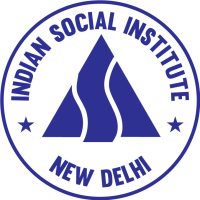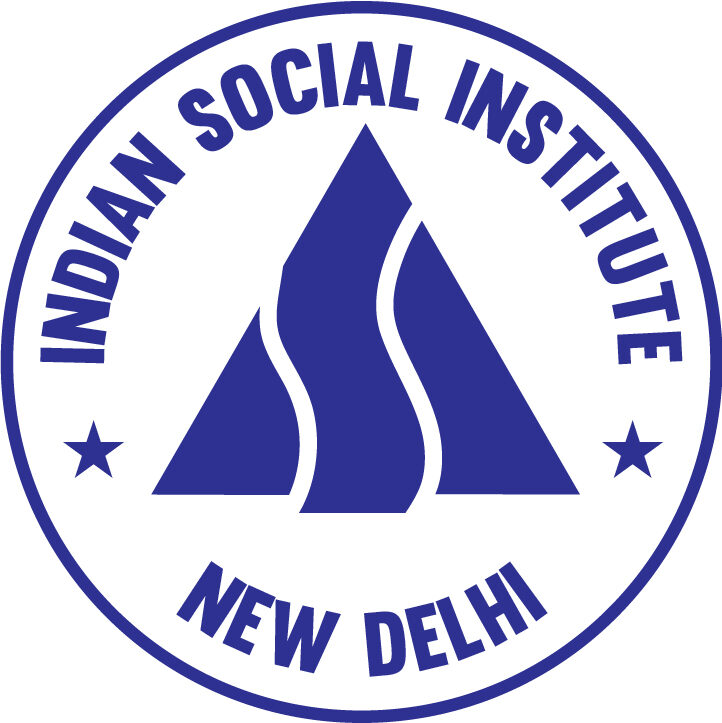History of ISI
Historical Landmarks The Founder
The Indian Social Institute (ISI) was founded in 1951 by Fr.Jerome D’Souza a Jesuit Priest, educationist, remarkably active in the civil society of the days of Independence. He had mediated between the Vatican and Nehru about ending Portuguese control over Indian churches. He was a member of the Indian Constituent Assembly and four times India’s delegate to the United Nation’s General Assembly. A man committed to political action, social concerns, national welfare, he was known among fellow nationals of all faiths for his feel for national concerns.
The above concerns of the founder were to be those of the Institute, guiding its growth and development in the years to come. The goal of the institute as defined by its founder was “to contribute to the emergence of a new social order in post-Independence India”. This contribution were to be at two levels: theory and practice.
First Decade 1951-1960
During this first decade the Institute started operationalising its vision. One of its first endeavors was to establish training centers in various parts of the country, imparting both theory and practice: Xavier Institute of Social Sciences at Ranchi , Loyola School of Social Work at Madras and one more at Trivandrum. These centers were to train professional social workers in their respective areas. These centers responded to the demands from the field for greater professionalism needed by the many local development projects of those days, sponsored by a growing number of Development Agencies across the country.
At the same time the Headquarters in Delhi concentrated more on research, establishing first contacts with various academic and research institutions in Delhi
Second decade 1960-1970
Responding to the demands from the field, an “Extension Service” was started at the headquarters, Delhi. Its first venture was the starting and organisation of a cooperative among fishermen who were, till then, mostly bonded laborers. Initially the main thrust of the Extension Service was the promotion of cooperatives. However by the mid-sixties, responding to the demands of the founding agencies and to the organisational needs at the local level, this service grew into a Consultancy Unit for development with its field officers spread all over the country for a more efficient service of local communities. Again, as a concrete response to the needs of the field, a training centre was started in Bangalore to adequately equip social workers already handling projects for the benefit of local communities. At the headquarters in Delhi, in the mid sixties, the labour economist of the Institute, then consultant to the Labour Commission of the Government, made, on behalf of this commission, a study on “the criteria for the minimum need base wage and the method for its computerisation” which served as one of the important points of reference for labour policy.
Also in the mid sixties, the Institute began action-research on the tribals . A “Chotanagpur survey” was conducted , an offshoot of which was the formation of a development group “Vikas Maitri”.
Third decade 1970- 1980
This decade was marked by consolidation of the existing activities and a few new ventures to enlarge the reach of the Institute. A Programme for Women’s Development was started to study the problems of women, create a new awareness of the actual condition of women in Indian society and promote their rights.
Responding to the request of a number of NGOs working at the grassroots, a “Mobile Orientation Team” was started. It intended to impart training to NGOs and people’s organisations right in the field, at the very grassroots
At the level of theory building, a significant number of workshops and seminars were organised on “Trade and Development”,” Population Growth and Development”, “Problems of Urban and Rural Women”,”Employment”, the resarch papers of which have been printed and disseminated.
Fourth decade 1980-1990
This was a period which saw a shift in the orientation and activities of the Institute . It added a “political dimension (political in the broad sense of the term). It attempted to blend research and activism, and articulated anew the institute’s goals. One document, worked out by the entire staff in a one week special session at the very beginning of the decade, summarises the new orientation. It emphasizes that the Institute’s main task is “to promote people’s organisations for socio-political,economic and human growth”. The statment which redefined the orientation and task of the Institute gave a new momentum to the entire institution. The Institute successfully took up before the Supreme Court the case of the construction workers grossly exploited at the building site of Asiad by powerful vested interests. The Director of the Institute along with the Director of the People’s Institute for Development and Training was appointed by the Supreme Court as Ombudsmen to study the conditions of those workers.
In the mid eighties, the Institute found itself deeply involved in relief work among the victims of the riots of 1984 and later contributed significantly to the surveys of the affected areas, exposing the political forces responsible for the deliberate and pre-planned massacres of several thousand Sikhs.
In order to consolidate the new orientation of the Institute a Department of Legal Aid was started for disseminating knowledge about human rights and offering professional support to organisations taking up cases of violation of human rights before the courts. In order to make the new thrust of the 1980 statement more lasting, three new programmes were initiated: a programme for Scheduled Castes, a programme for Scheduled Tribes and a Programme for Agricultural Education.
Fifth decade: 1990-2000
This was a decade of further assimilation of the ideological and practical contents of the 1980 Statement. In order to facilitate this assimilation and evolution of the Institute much emphasis was given on the study of social movements and on a self-critical perception of the Institute’s functioning, within the context of the challenges these movements were throwing at both the levels of professional and intellectual support.
For a better interaction with the NGO community, the Institute began operating “India Link”,an e-mail communication network providing access to latest information on global socio-political events. During the international Beijing conference, the communication host at the Institute established direct link with the APC communication unit at the conference site, facilitating the dissemination of conference’s events and proceedings to the users of the India-Link system. The decade saw the involvment of the Institute in the political question, initiating a “People’s Agenda” at the time of elections. While providing its own support to groups like the Narmada Bachavo Andolan and others who were fighting for control over national resources, the Institute worked with NGOs, civil society groups and political actors on bills dealing with land acquisition, aquaculture, biodiversity and other issues affecting the environment.
Advocacy and lobbying henceforth became important dimensions of the Institute’s work. Up to these days the Institute continues to remain active on political issues of democracy, secularism and pluralism.

